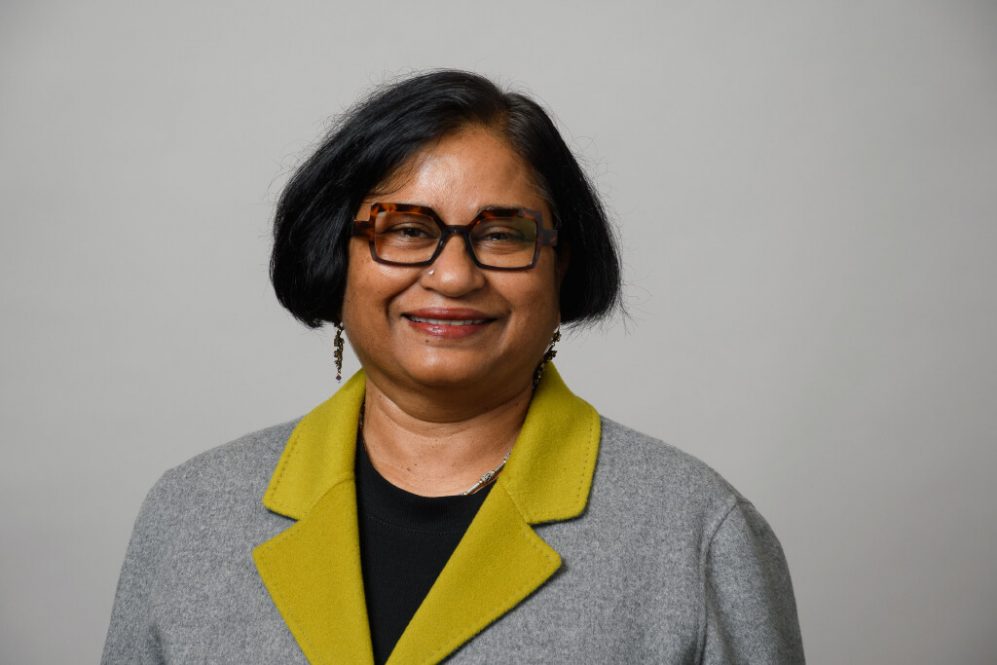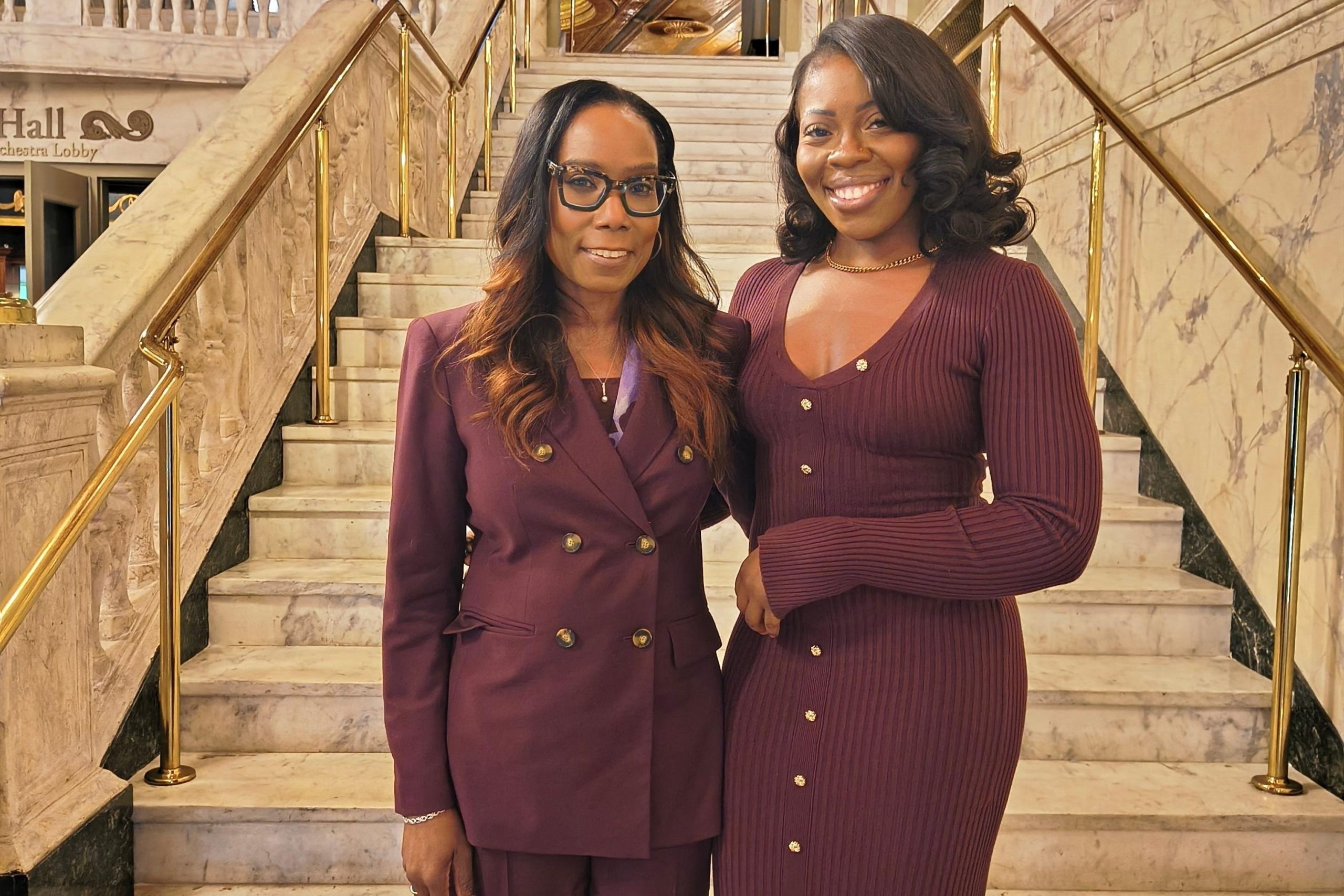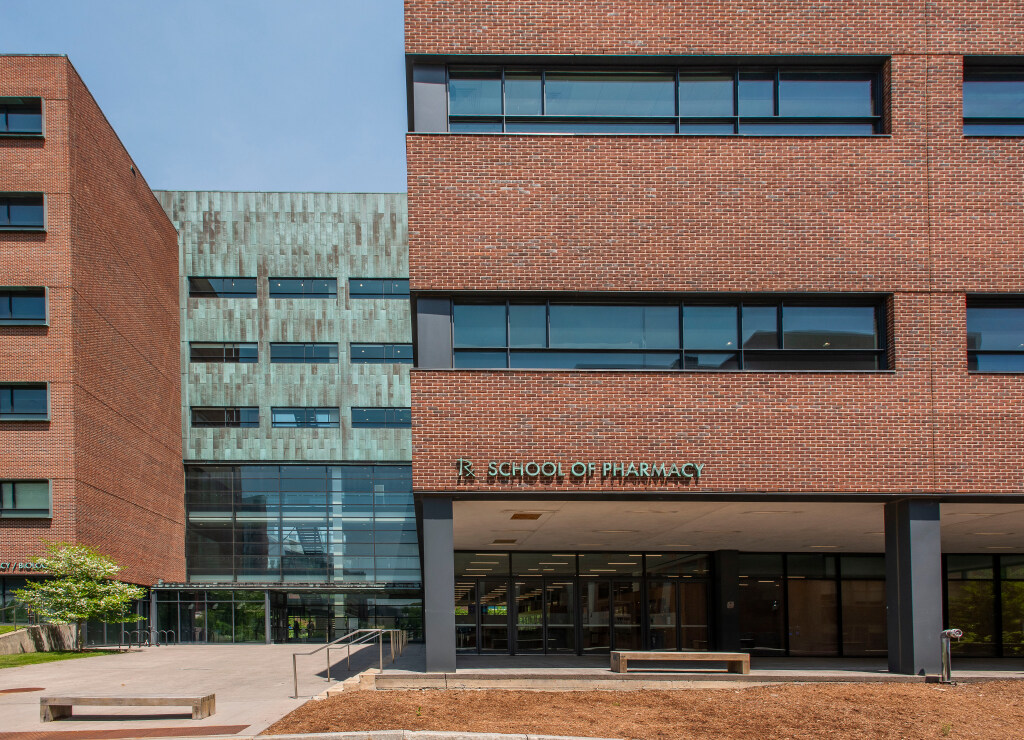Twenty years ago, when Rebecca Thomas joined the UConn School of Social Work, she didn’t consider herself someone who specialized in global human rights – let alone someone who’d become an expert in the subject matter.
“I was just Rebecca, born and raised in another country, sensitive to issues of global concerns,” she says.
Then Thomas met colleague Lynne Healey, now a professor emeritus from UConn, who became a mentor, friend, and colleague. Together, they coupled on many projects, including the literal writing of their widely recognized textbook, “International Social Work.”
Thomas says her professional development as an international social worker helped shape her sense of self. And soon, “just Rebecca,” became chair of the Council on Social Work Education’s Global Commission, a current board member on the Katherine Kendall Institute of Council of Social Work Education, a Fulbright Scholar, and a representative of the International Association of the Schools of Social Work on the NGO Committee on Migration at the United Nations.
Now, she’s a 2024 PIE Award winner from the Council on Social Work Education, a prestigious honor given annually to a trio of winners – individual, organization, and student – for their innovative work and dedication to international social work.
The Partners in International Education awards precede the Hokenstad International Lecture at the 2024 CSWE Annual Program Meeting in late October.
“I vacillate between feeling like I have a strong knowledge base and being humbled by the vast body of knowledge of colleagues,” says Thomas, a UConn professor and director of the Center for International Social Work Studies, which just celebrated its 30th anniversary. “I recently was with the Southeast Europe Academic Women’s Leadership Network, for instance, and these women were from all over the Balkans and talking about their global perspective on social work. The adage applies, ‘The more you know, the more you realize how much you don’t know.’”
Thomas has just returned from her Fulbright in Bulgaria where she and graduate assistant Fizza Saghir completed 30 interviews with displaced persons, many from Ukraine, and 20 interviews with service providers as part of a study that’s similar to one she did in Armenia.
She says she connected with Yerevan State University in Armenia years ago when UConn helped the school develop its Master of Social Work policy program. Now, Thomas directs a joint academic exchange between UConn and Yerevan.
Despite the leadership opportunities and accolades she’s earned, working with students is perhaps one of the things she’s most proud of, she says.
“I’m passionate about teaching. I get excited about the exchange of ideas,” Thomas says. “Helping students to see the interconnectedness of global issues and the local issues they are trying to address here in Connecticut is so important. Yesterday, I was talking to a doctoral student about a paper we’re writing together, and our discussion was so interesting because we each had different perspectives. Engaging in a dialogue, having off-the-cuff conversations has been meaningful to me.”
She adds that students need to understand they don’t have to spend time overseas to do international global work. Change can happen right here, like when a former student, who was a refugee from Albania via Greece, was in kindergarten and the school saw her struggling because of the language barrier. Her elementary teacher got someone to translate, and her learning exploded.
“As Americans, we see migrants in every sphere of our lives. They are in our classrooms. They are in our health systems. Our NESW code of ethics requires that we understand the perspectives of those who are living together here in community,” Thomas says. “We need to be sensitive to issues of immigration, like for my former student. These are not isolated situations.”



